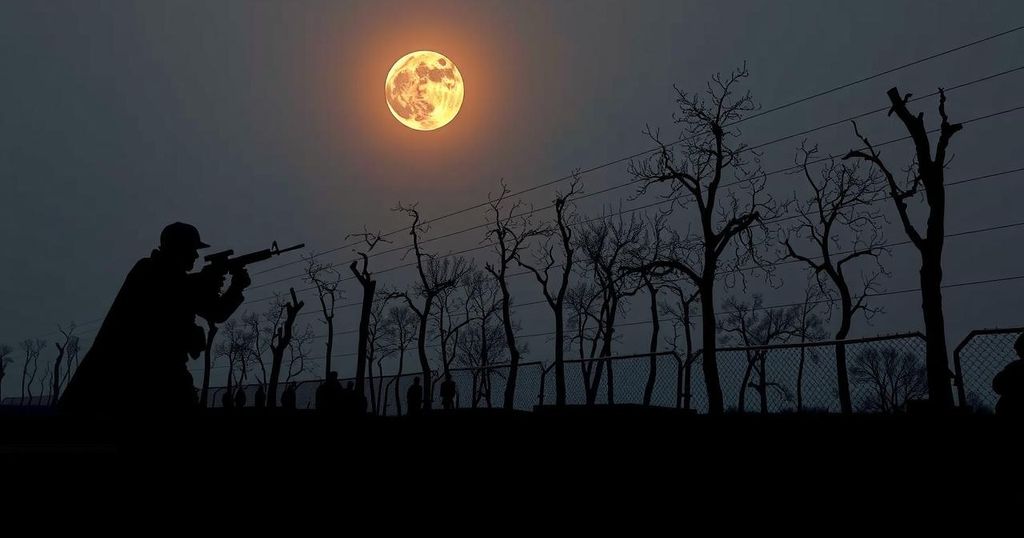Escalating Conflict in Myanmar: The Implications of Lashio’s Capture on China’s Interests
Summary
The capture of Lashio by the MNDAA has heightened tensions in Myanmar, posing a considerable challenge to the ruling military junta. This event follows the collapse of a truce brokered by China, which aimed to stabilize the border region. As the conflict escalates, over 50,000 have died and millions displaced since the 2021 coup. Analysts indicate that China’s influence may be growing amidst the junta’s decreasing control and legitimacy.
In recent developments, the capture of Lashio, a pivotal town in northeastern Myanmar, by the Myanmar National Democratic Alliance Army (MNDAA) and its allied forces has significantly escalated tensions along a border that the Chinese government has endeavored to keep peaceful. This military defeat marks a substantial decline for Myanmar’s ruling military junta, which has faced increased challenges since the coup that ousted elected leader Aung San Suu Kyi in 2021. The MNDAA’s victory follows the collapse of the Haigeng agreement, a previous truce brokered by China aimed at dampening conflicts between the Myanmar military and various ethnic armed organizations (EAOs) along the Chinese border, approximately 70 miles from Lashio and part of a critical trade route. Jason Tower of the United States Institute of Peace remarked, “From China’s vantage point, the escalation of the conflict is a major setback in terms of its interest in upgrading the Haigeng agreement and getting the belligerent parties to establish further deals to reset trade between the China border and Mandalay,” illustrating the complexities of China’s geopolitical interests in the region. The acknowledgment by junta leader Min Aung Hlaing regarding the military’s withdrawal from certain positions highlights the precariousness of the situation. He attributed the turmoil to “insurgents and their stooges at home and abroad,” emphasizing a need for unity in countering these threats. Since the 2021 coup, the continuing conflict has resulted in over 50,000 casualties and displaced more than 2.5 million people in Myanmar, a nation of roughly 54 million residents. Despite facing Western sanctions, the junta has sustained military support from China and Russia. China’s role remains ambiguous, as it maintains historical ties with various ethnic armed groups, including the MNDAA. Yun Sun of the Stimson Center noted that the seizure of Lashio by the MNDAA likely received “China’s tacit approval,” suggesting a shift in Chinese strategy to foster a stable border region controlled by EAOs rather than an unreliable junta. Reports indicate that MNDAA commanders had been instructed to ensure the protection of Chinese citizens and assets during their advancements. The ongoing instability has impeded many Chinese business ventures and infrastructure projects in Myanmar, further illustrating the impact of the coup and the resulting chaos on economic activities. Yun also conveyed that China would continue to back upcoming elections proposed by the junta, despite their questionable legitimacy, suggesting that the junta remains reliant on Beijing’s support as their territorial control diminishes. Notably, Tower pointed out that the junta cannot afford to alienate China, as it remains their primary source of none domestic support amidst a backdrop of escalating conflict and instability in the country.
The article discusses the intensified conflict in Myanmar following the seizure of the town of Lashio by the MNDAA, an ethnic army opposing the military junta. The backdrop of this situation includes the significant military setback for the junta, which has faced unrest after the coup that led to the ousting of Aung San Suu Kyi in 2021. China’s role is delicate, as it has historically sought to maintain peace along its borders while managing its interests in Myanmar’s internal affairs, particularly with the ethnic armed groups.
In conclusion, the recent capture of Lashio by the MNDAA has exacerbated tensions along China’s border with Myanmar, posing significant challenges for the military junta that has struggled to regain control since the 2021 coup. China’s diplomatic efforts and its historical connections with various ethnic armies underscore the complex dynamics at play in the region, revealing that the junta’s reliance on China may intensify amid its diminishing authority. As the situation evolves, the balance of power and influence among the Myanmar military, ethnic groups, and external actors like China remains crucial for determining future stability in the area.
Original Source: www.newsweek.com







Post Comment